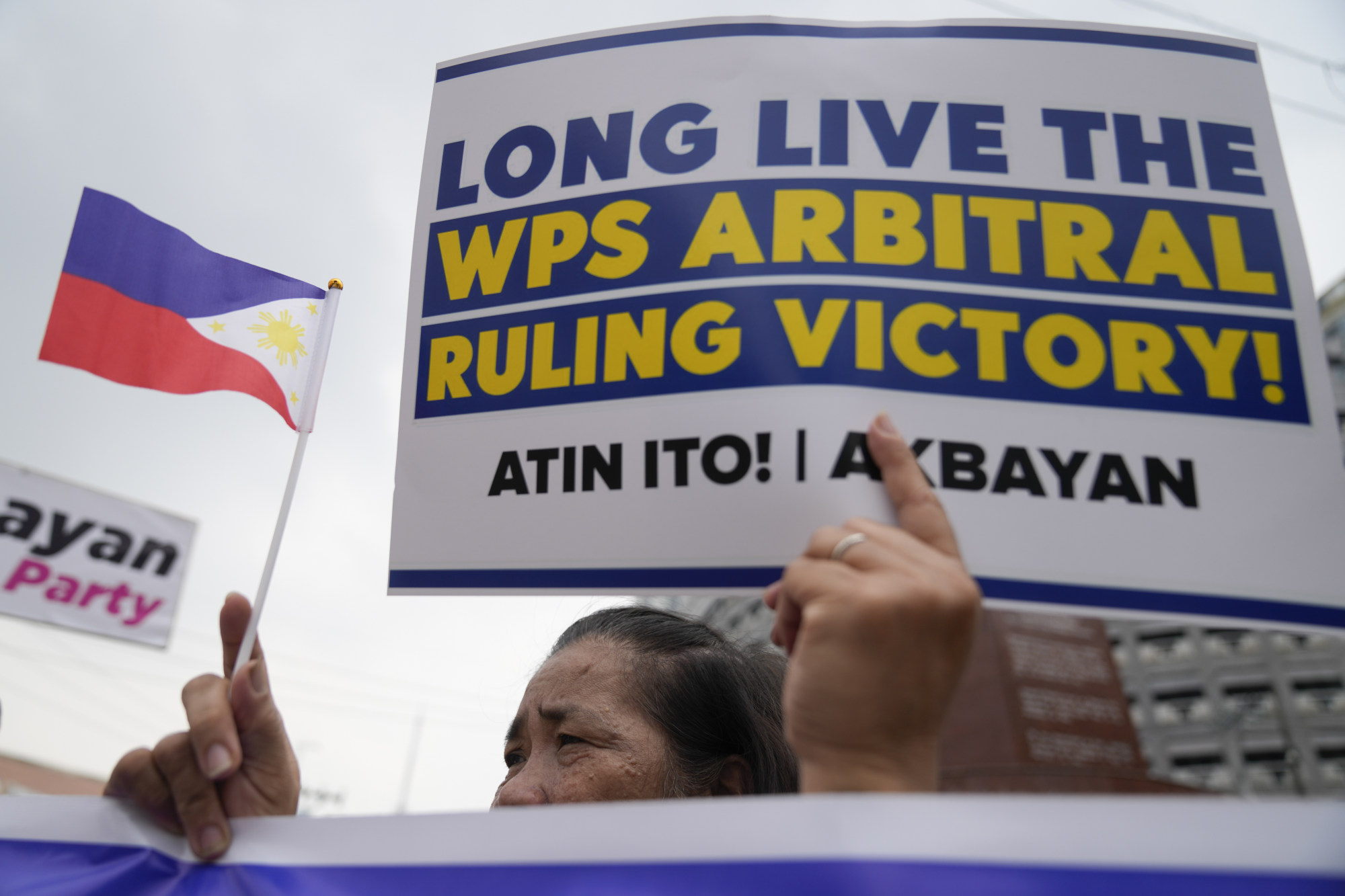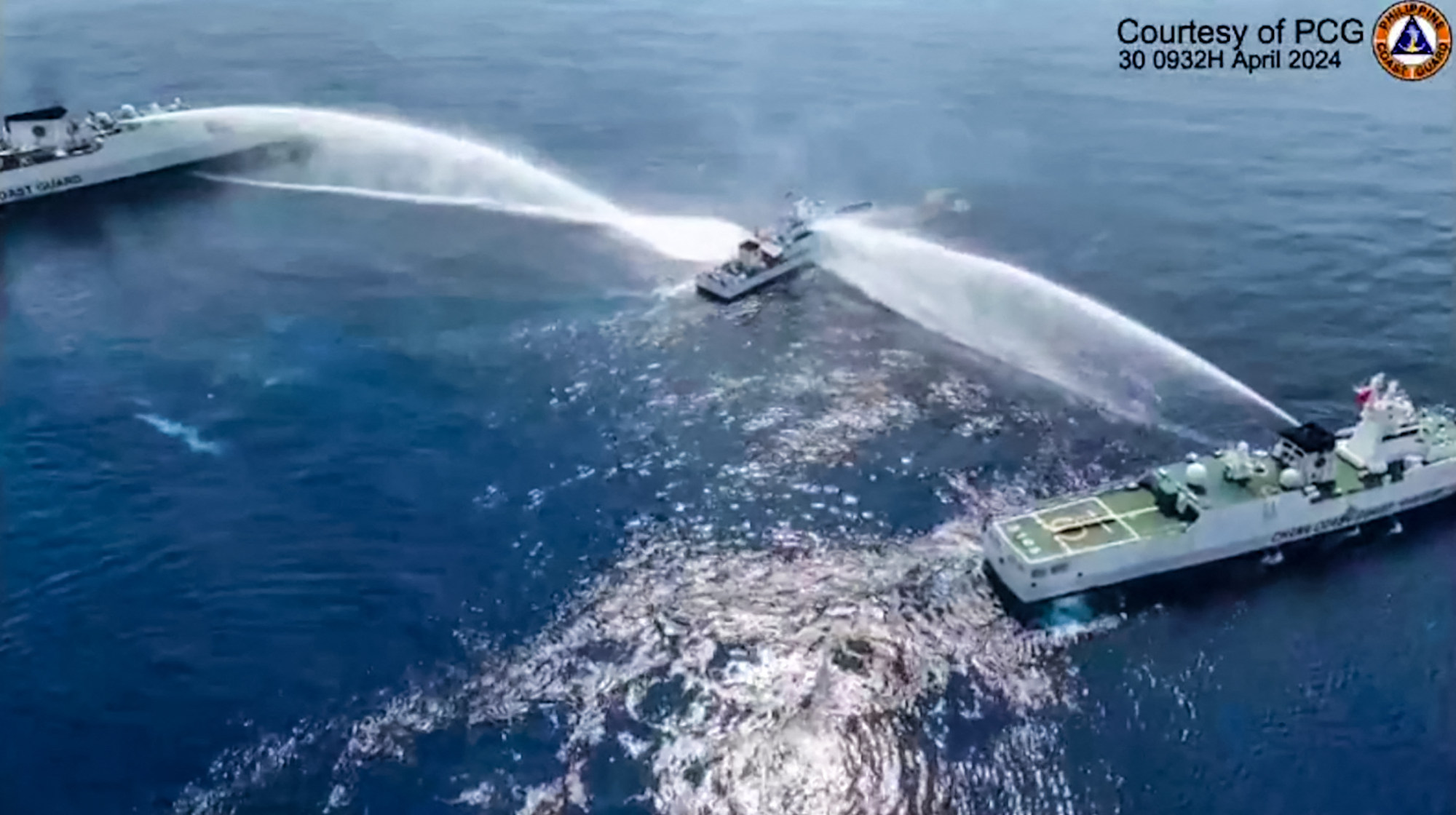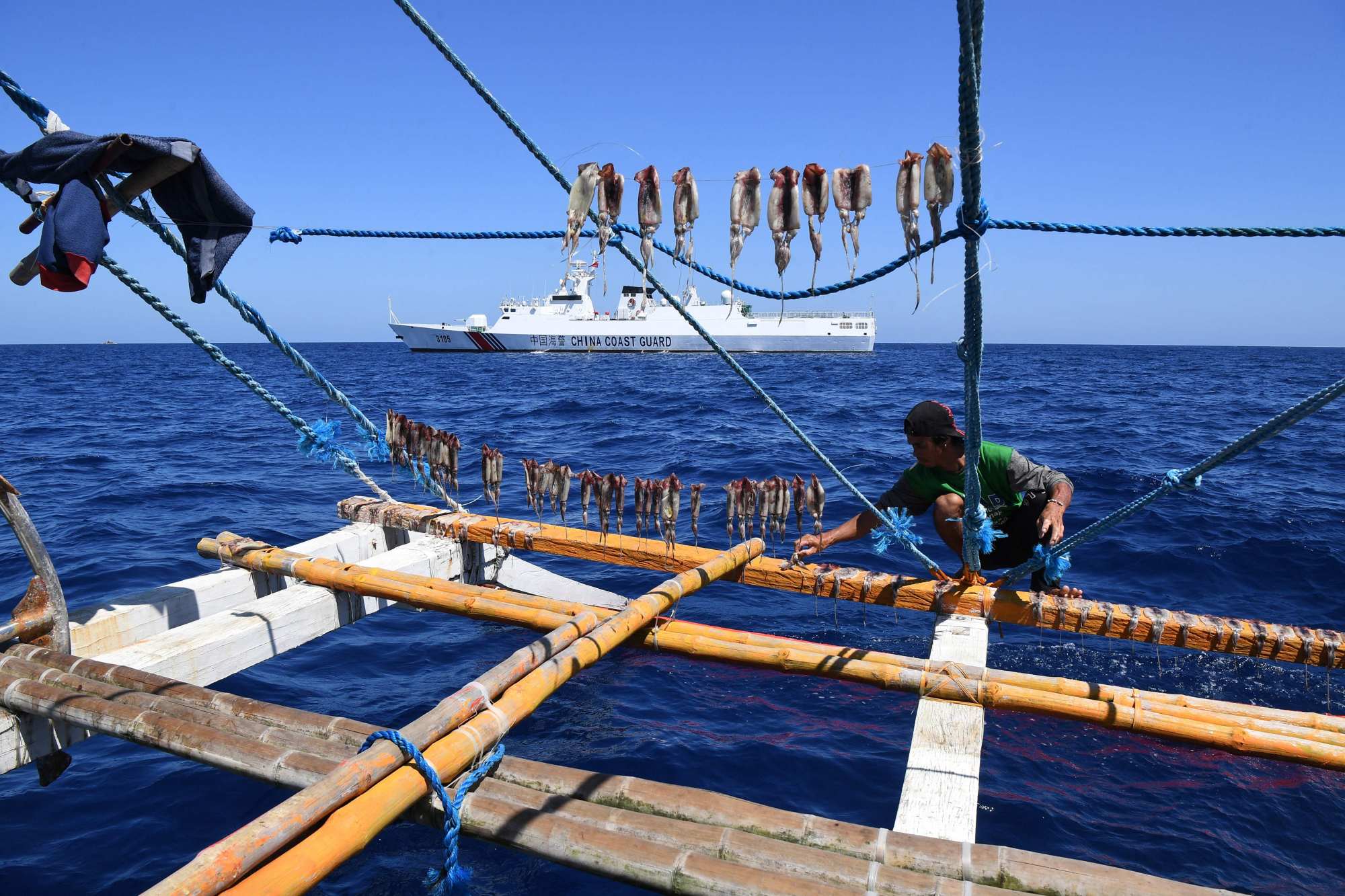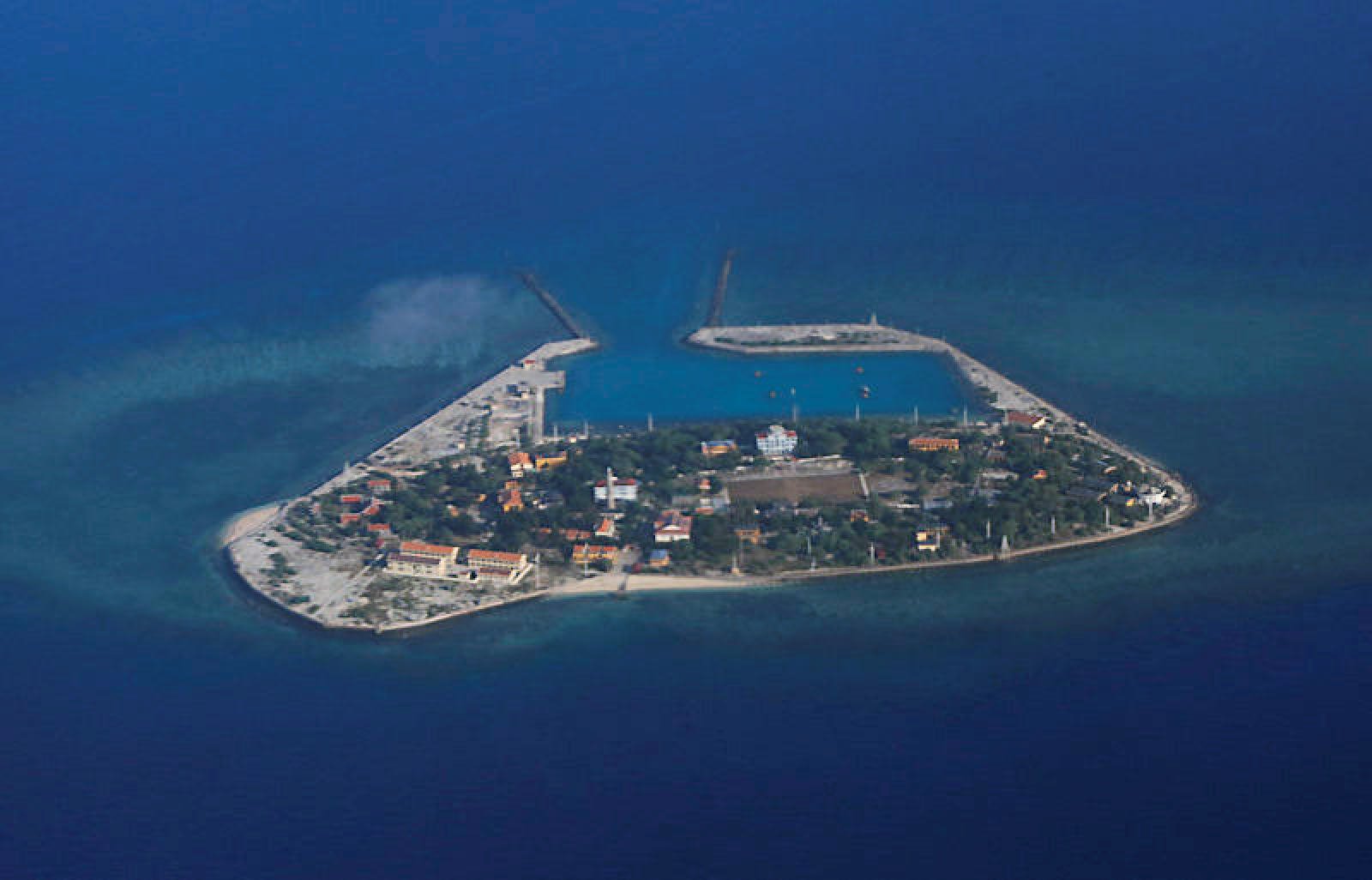South China Sea: Philippines, Vietnam urged to file joint arbitration on fishing rights
The event was organised by the Stratbase ADR (Albert del Rosario) Institute, marking the first time at least 26 nations came together to show support for Manila, which had single-handedly instituted arbitral proceedings against Beijing in 2013 for violating the United Nations Convention on the Law of the Sea.

The Philippines and China have been locked in a months-long war of words over maritime claims in the South China Sea, punctuated by clashes between both sides. Manila perceives Chinese aggression to include Beijing’s claim to exclusive fishing rights within the Scarborough Shoal, a flashpoint that both sides claim falls under their territory.
Carpio at the forum suggested that one of the ways forward was to file a new arbitration case “for China’s refusal to allow Filipino fishermen to fish in the lagoon of Scarborough Shoal”, adding Manila could invite Hanoi on the action.
The arbitral award issued on July 12, 2016, ruled that “the territorial sea of Scarborough Shoal is a traditional common fishing ground of Filipino, Chinese and Vietnamese fishermen”, he said.
“The lagoon of Scarborough Shoal is part of the territorial sea of Scarborough Shoal since only a few high-tide rocks surround the lagoon. However, the Chinese coastguard has been preventing Filipino fishermen from entering the lagoon of Scarborough Shoal to fish even as Chinese fishermen freely fish inside the lagoon.”
In recent months, Chinese coastguard members used powerful water cannons against two Philippine vessels patrolling near the shoal – which China calls Huangyan – and damaged both.

Carpio said such Chinese actions could be prevented.
“The Philippines can submit to arbitration the drawing up of rules for common fishing in the lagoon. For example, how many tonnes of fish catch per year can each country take; what are the months of the fishing season; what are the months when fishing is disallowed to allow the fish to regenerate; and what fishing gear are allowed inside the lagoon,” he said.
“These rules, applicable equally to Filipino, Chinese and Vietnamese fishermen, are needed to make fishing sustainable in the lagoon of Scarborough Shoal.”
While “China will again boycott this third arbitration”, Carpio noted the tribunal could issue an award adopting the Philippines’ recommendations on the rules governing fishing in the shoal.
The new victory would be highly significant, he said, because “this will be another arbitral award that will further bury China’s 10-dash line”.
The day-long conference, attended by diplomats including from Singapore and Brunei, also discussed steps for Manila in the West Philippine Sea, part of the South China Sea that it considers within its exclusive economic zone (EEZ).
Five ambassadors spoke out to condemn Beijing’s actions and praise Manila for not backing down in the face of Chinese military might.

Ambassadors from Western nations comprising the United States, Australia, Canada and France stressed the significance of the 2016 tribunal ruling in helping secure peace in the Indo-Pacific region, while some condemned China’s aggression and tactics in the disputed waters.
Tokyo ambassador Endo Kazuya, however, struck a more conciliatory tone, pointing out both Japan and the Philippines “hold strong bonds with China historically”, and as its primary trading partner.
“Our common task is how to forge a more stable and prosperous structure for our sake. I have to admit that this is not an easy question, but this is exactly why we need to work closely to explore effective ways to address and manage these issues in front of us.”
Will Vietnam accept?
Although Vietnam had hinted that it was thinking of filing its own arbitration case against China, an expert on Vietnamese security affairs told This Week in Asia on Sunday that the Southeast Asian country was unlikely to accept Manila’s offer.
“I believe that similar to the 2013 case, it is very unlikely that Vietnam will join the Philippines in challenging China’s claim over Scarborough Shoal,” said Le Hong Hiep, senior fellow and coordinator of the Vietnam Studies Programme of the ISEAS – Yusof Ishak Institute in Singapore.
Hiep, who briefly worked at Vietnam’s foreign ministry, said: “Vietnam considers maintaining peaceful and stable ties with China a key priority, and would not want to upset Beijing over issues not critical to its national interests.
“Although Vietnam wants to protect its fishermen’s rights to fish there, the shoal is not located within Vietnam’s EEZ or continental shelf. As such, Vietnam may prefer to protect its rights through diplomatic means, or through avenues that do not lead to direct or tense confrontation with China.”
Hanoi would “lend diplomatic support to Manila’s efforts” even if it was unlikely to join the Philippines’ case, he added.

Relations between the two states have slowly mended ever since Vietnam claimed Pugad Island (Southwest Cay), one of the Philippine-occupied features in the Spratlys, in 1975 and renamed it Song Tu Tay island.
Last week, both Southeast Asian nations showed their growing closeness.
A detachment of Philippine marines sailed to Song Tu Tay for a “friendship exchange” of activities including tug of war and football, the state-owned Voice of Vietnam said.
It was part of the implementation of a 2011 memorandum of understanding to strengthen bilateral cooperation and information sharing that began a decade ago.
Hanoi last month hinted it was ready to sit down with Manila to settle their overlapping claims to the undersea continental shelf.